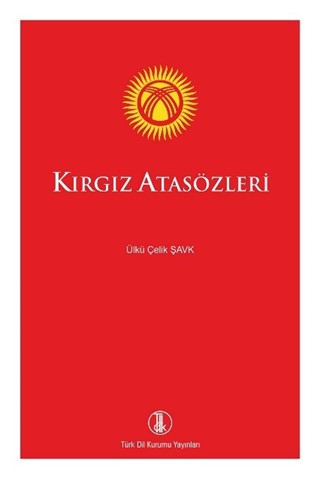
Kırgız Atasözleri / Kyrgyz Proverbs
The second edition of Kirghiz Proverbs, prepared by Ülkü Çelik ŞAVK and published in 2002. "Introductory" part touched upon prior studies carried out on the Kyrgyz proverbs, Divan Lugati't, and Turks in Turkey is compared with the Turkish proverbs. In the "Text" section of the original 1818 case of one Kyrgyz proverb, and the interpretation of Turkey Turkish is given with Turkish counterparts in the Turkish language. The next section, "Directory" is also included in the provisions of the Kyrgyz Turkish word in Turkey Turkish proverbs.
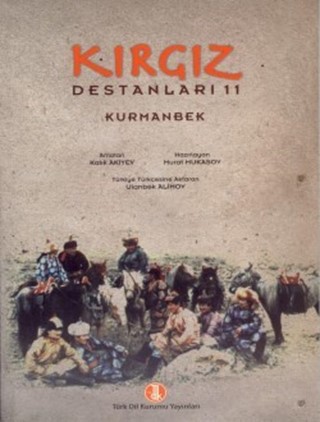
Kırgız Destanları XI: Kurmanbek / Kyrgyz Epics XI: Kurmanbek
“Kyrgyz Epics 11” is the 50th of the works under the “Detection of Turkish World Epic, Transferring to Turkey Turkish and Publishing Project" headed by Prof. Dr. Fikret Türkmen. “Kyrgyz Epics 11” is a work that deals with the Kurmanbek epic. In the "Introduction" part of the work, information about the epic narrator Kalık Akı Uulu was given, the plot was mentioned and the motifs in the epic were examined. The main part of the work consists of the original text and the text that is transferred to Turkish. The last part of the work is divided into a dictionary and index.
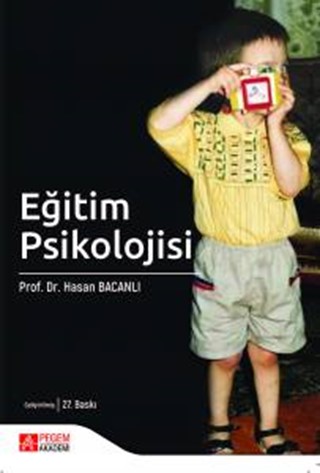
Eğitim Psikolojisi / Education Psychology
In the writing of this book, which deals with the basic issues and concepts of educational psychology, the author, besides being a field expert, tried to meet the wishes and expectations of the reader by putting himself in the reader's shoes. In addition, care was taken to comply with the principles regarding learning.
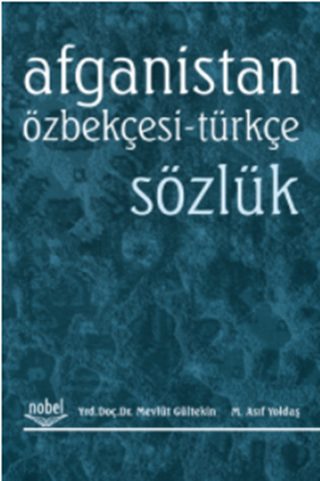
Afganistan Özbekçesi-Türkçe Sözlük / Afghanistan Uzbek-Turkish Dictionary
This dictionary, which we have presented to the scientific world under the name of the Afghanistan Uzbek Dictionary, is the first dictionary of Northern Afghanistan Uzbek Turkish. Scientific studies on Uzbek Turkish, which is used by more than 1.5 million Uzbek Turks in Northern Afghanistan, were started by Gunnar Yarring in the first half of the 20th century (Uzbek Texts From Afghan Turkestan, Lund 1938), but were later neglected. Although the forms of Uzbek Turkish spoken in Uzbekistan, which is included in the Southeastern group of the Turkish Language, have been well researched - both in terms of standards and dialects - it has been stated by some Turcologists that not much has been done about the Northern Afghanistan Uzbek Turkish. For example, Boeschoten states that a lot can be gained from the discussions on Uzbek Dialects by including the dialects of Northern Afghanistan, which have been completely neglected in Uzbek Dialect science research (The Turkic Languages 1998: 378). Although this study, which we think may make a small contribution to filling the gap in this subject, is mainly based on the Uzbek language of Seripul vilahata, it can also represent the other dialects of Uzbek Turkish in Northern Afghanistan. Moreover, during the processing of some head words, the figures in other dialects were also pointed out.
In this long-lasting study, M. Asif Yoldaş, one of the authors of this book whose native language is Seripul Uzbek, started by blacking out the words he could remember, and then when these slips were constantly expanded and kept quite a lot, the work named Uzbek English Dictionary (Waterson 1980) was reviewed and new words were added to the work. has been. In the preparation of the dictionary, Borovkov's dictionary (Uzbeksko-russkiy slovar ', Moscow 1959) has also been one of the books that are frequently used - especially for the clarification of the words hesitating in its meaning.
Place names and names of boys and girls are added at the end of the dictionary.
Although this study was made with the thought that it could be beneficial for Turkish Language researchers, we believe that it can also be useful for those who want to learn Uzbek Turkish.
As it is the first experience in Turkey, there might be a number of errors in dictionary. The authors are already grateful for the constructive criticism to be made regarding the elimination of issues overlooked in later editions of the dictionary.
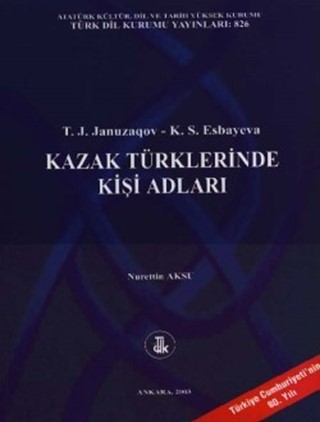
Kazak Türklerinde Kişi Adları /Names of Persons in Kazakh Turks
This work, called Person Names in Kazakh Turks, basically consists of two parts as Male Names and Female Names. The names of the persons included in the list were written using the 34-letter common alphabet, followed by their surnames and paternal names. In the introduction part of the work, information is given about the spelling of the names of the people, the structure of the work, the works used in the preparation of the work, and the birth record order. After the text section where the names of men and women are given, there are appendices and bibliography sections.
